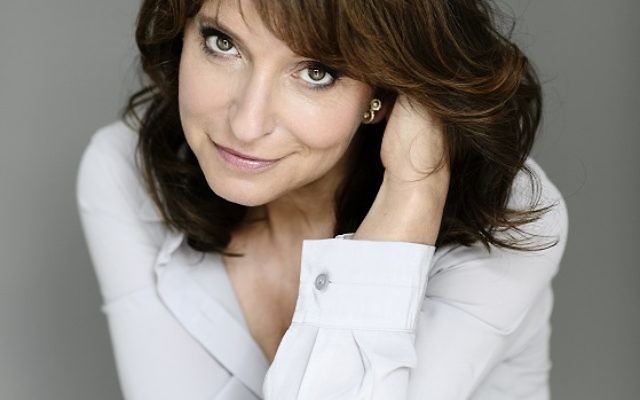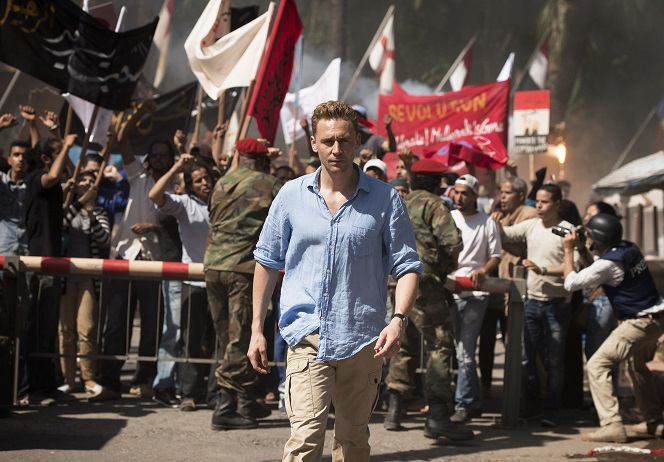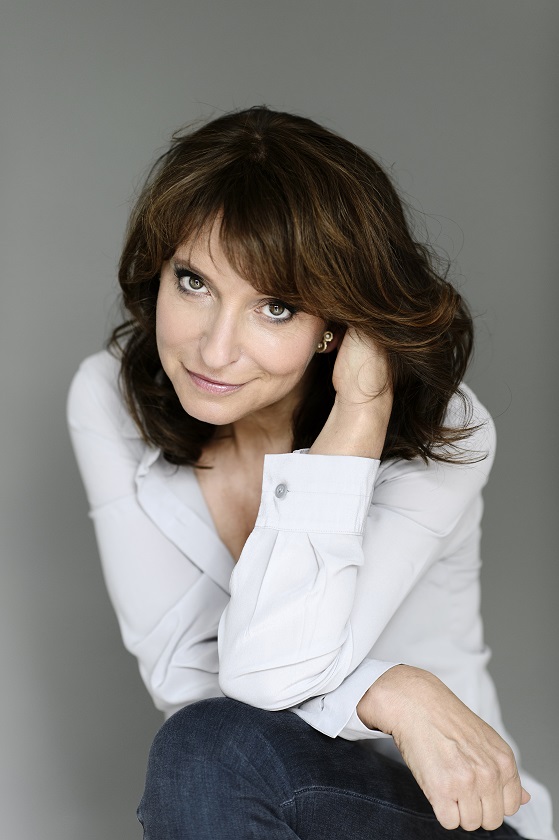The Night Manager director Susanne Bier confesses ‘huge responsibility’ of adapting John Le Carré for TV
Francine Wolfisz speaks to Danish-born director about the stunning adaptation of the BBC spy thriller
Francine Wolfisz is the Features Editor for Jewish News.
Francine Wolfisz speaks to Danish-born director Susanne Bier about her new TV adaptation of bestselling author John Le Carré’s The Night Manager
Illegal deals, secret files, fake kidnappings and illicit love. Such are the enthralling elements that make John Le Carré a bestselling author of espionage thrillers – and which director Susanne Bier hopes will tantalise viewers with her new television adaptation of his novel, The Night Manager.
Starting on Sunday night, the six-part drama follows former British soldier Jonathan Pine (Tom Hiddleston), who is recruited by an intelligence operative named Burr (Olivia Colman) to investigate the shadowy relationship between Whitehall and Washington involving the intelligence community and the secret arms trade.
In his quest to discover more about lethal arms dealer Richard Onslow Roper (Hugh Laurie), and his inner circle, including girlfriend Jed (Elizabeth Debicki) and an associate named Corcoran (Tom Hollander), Pine himself must become a criminal.
As the first television adaptation of a Le Carré novel in more than 20 years, Danish-born Bier, who is married to Swedish film score composer Jesper Winge Leisner, confesses to feeling a “huge, big responsibility” in bringing his 1993 novel to the small screen.
“There’s always pressure in adapting a great piece of writing and I certainly didn’t want to let Le Carré down. But you have to eventually set yourself free and do your creative work the way you would want to do it.
“There are very few people whose artistic integrity is beyond any questions – and he is one of them. His books are masterpieces.”
The 55-year-old Jewish director, who won an Academy Award for Best Foreign Language Film in 2011 for her work, In A Better World, is a self-confessed fan of both Le Carré and the spy genre, which “by its nature is super fascinating.”
She adds: “I just think it’s totally intriguing. If I see a story in the newspaper about real spies, I will automatically be attracted to reading about it. I think these stories trigger something in us. It plays into our natural curiosity.
“Le Carré manages to provide this fascinating mix of exciting thriller and intrigue. I’ve just always found his work deeply compelling.”
While staying loyal to the original, Bier reveals writer David Farr, who previously worked on the Bafta-winning Spooks, has made a number of tweaks that bring The Night Manager into today’s political situation.
The setting has been relocated from murky South American drug warlords to the start of the Arab Spring in 2011, while Le Carré’s straight-seeing spy Leonard Burr has become female. Meanwhile, the plotlines of the last two episodes are not taken from the book at all.
“In many respects it’s quite different,” admits Bier, “but it’s very truthful to its core. It has the same essence. Farr’s work is very much in the spirit of Le Carré.”
Produced over 16 weeks and shot in Switzerland, Morocco and Majorca, Bier speaks passionately about her latest project, which is “human storytelling at its core”.
Interestingly, she points to her sense of Jewishness for providing her talent as a visual storyteller.
Bier, who graduated from the National Film School of Denmark, explains: “My Jewishness has definitely impacted my work. Many of my previous films have dealt with the family, which is so much a part of our DNA, but so too is having a very distinct sense of catastrophe, because our history is so full of it.
“That in turn has given me a sense of urgency and that has gone into my storytelling. I think it’s actually quite visible in everything I do.”
A sense of catastrophe and urgency were certainly a formative part of Bier’s upbringing in Denmark. Both her father, Rudolf, now 85, and originally from Germany, and mother, Hennie, 80, were forced to flee from Copenhagen to Sweden in 1943.

Recalling a story about her family’s experiences, she tells me: “It was Rosh Hashanah and my mother’s mother was cooking a goose in the oven when they were told they needed to leave. The neighbours just sealed off the apartment for them.
“When they came back after the war, that goose was still in the oven. So there was a thing in the family that we could never have goose or duck when my grandmother was around, because it reminded her of all that had happened.
“My paternal grandparents both lost family, while on my mother’s side she has a cousin born in Theresienstadt.”
Family is hugely important to her. Bier reveals she enjoys a close relationship with son Gabriel, 26, and Alice, 20, from her first marriage to actor Philip Zanden.
With an Oscar already under her belt for In A Better World, and a nomination for her 2006 film, After The Wedding, I ask what’s next on the horizon for Bier – and it seems for the foreseeable future, her heart is still firmly set in the world of directing.
“I want to keep challenging myself and as long as I’m incredibly excited and almost terrified – as if each project is like climbing a mountain – then I want to do this. When I no longer feel that way, I should probably just open a bakery!”
The Night Manager begins on Sunday, 21 February, 9pm on BBC One.

Thank you for helping to make Jewish News the leading source of news and opinion for the UK Jewish community. Today we're asking for your invaluable help to continue putting our community first in everything we do.
For as little as £5 a month you can help sustain the vital work we do in celebrating and standing up for Jewish life in Britain.
Jewish News holds our community together and keeps us connected. Like a synagogue, it’s where people turn to feel part of something bigger. It also proudly shows the rest of Britain the vibrancy and rich culture of modern Jewish life.
You can make a quick and easy one-off or monthly contribution of £5, £10, £20 or any other sum you’re comfortable with.
100% of your donation will help us continue celebrating our community, in all its dynamic diversity...
Engaging
Being a community platform means so much more than producing a newspaper and website. One of our proudest roles is media partnering with our invaluable charities to amplify the outstanding work they do to help us all.
Celebrating
There’s no shortage of oys in the world but Jewish News takes every opportunity to celebrate the joys too, through projects like Night of Heroes, 40 Under 40 and other compelling countdowns that make the community kvell with pride.
Pioneering
In the first collaboration between media outlets from different faiths, Jewish News worked with British Muslim TV and Church Times to produce a list of young activists leading the way on interfaith understanding.
Campaigning
Royal Mail issued a stamp honouring Holocaust hero Sir Nicholas Winton after a Jewish News campaign attracted more than 100,000 backers. Jewish Newsalso produces special editions of the paper highlighting pressing issues including mental health and Holocaust remembrance.
Easy access
In an age when news is readily accessible, Jewish News provides high-quality content free online and offline, removing any financial barriers to connecting people.
Voice of our community to wider society
The Jewish News team regularly appears on TV, radio and on the pages of the national press to comment on stories about the Jewish community. Easy access to the paper on the streets of London also means Jewish News provides an invaluable window into the community for the country at large.
We hope you agree all this is worth preserving.
























